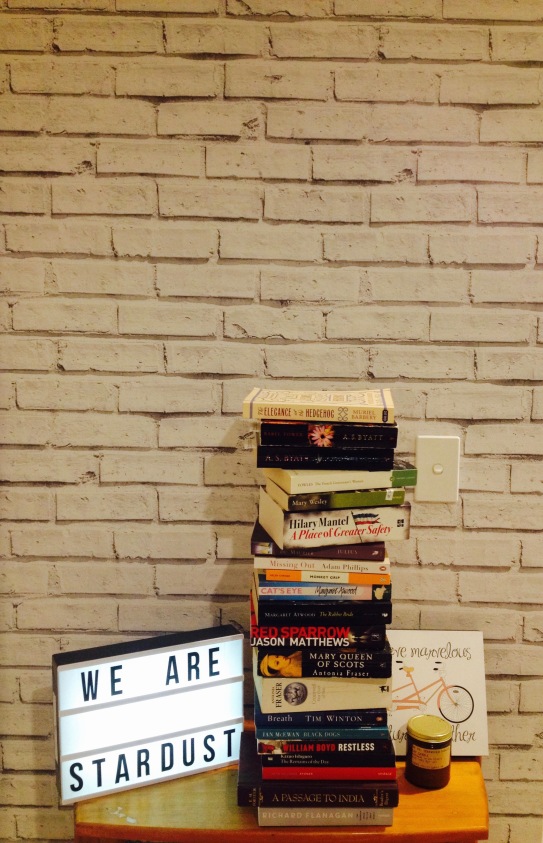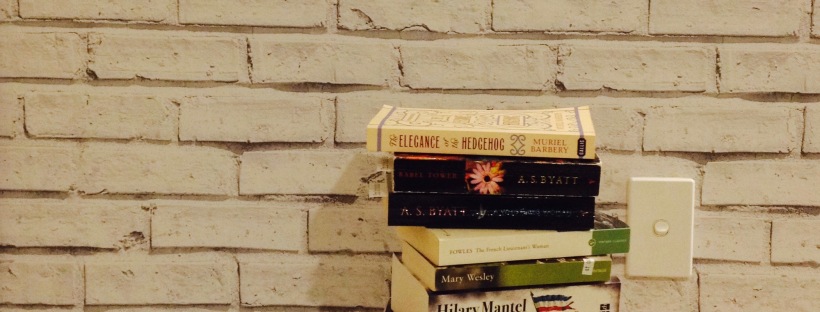
Please be aware this post discusses suicidal ideation.
It seems to be pretty common knowledge now that Christmas is a time when people are especially depressed, and suicide rates can spike. I work in mental health, and am acutely aware of the loneliness and isolation people can feel at this ‘family time’. I will possibly write on that another day. But this is a different post. This is a post about how books can save you.
So yes, my professional awareness is that Christmas time is hard. As a person though, driving home to visit my mother before travelling on to spend this Christmas with my in-laws (we do it year about with our families) I did not expect to get a desperate call from my sister. Well it wasn’t a call; it was a text. 20 minutes out from getting to my hometown, a text saying life is shit and she wants to die, but cannot figure out how to kill herself.
FYI if you find yourself in this situation, get the person to an emergency room, or if you are in Australia, call 1800011511.
After the initial period of stress, crying and finding space to relax in each other’s presence, I immediately went off in search of whatever books I had stashed in my car. I always travel with a bunch, I live in fear of not having enough books with me, or having ones that I cannot quite get into at the time.
I pressed The Natural Way of Things, by Charlotte Wood, into my sister’s hands. I wanted her off her phone, and in another world. I know the power of a novel to whisk you far away from your own problems, but also comfort and remind you that you are not the only one. Is a dystopian novel about misogyny the first book I would have picked, had I had my library before me? Ideally, no. But as it turns out, it was perfect. She raced through it, finishing it in a few hours. She read it sitting up, lying down, and moving around utterly transfixed. She didn’t notice me taking photos of her worried face. She uttered and mumbled ‘no’, gasped in shock, and lost herself in the book.
Bibliotherapy is the use of books in the treatment of mental illness or disorders. I use it in my work, often with children who are experiencing grief, loss or trauma. Children’s books are brilliant at explaining change, and allow the children to think about other people’s experiences. So in the case of my sister, I wasn’t worried about the particular story line, but about getting her out of her own head. Empathy, reflection and self-care were byproducts.
I continued feeding her books for the next few days. We raced into the nearest town to pick up a few more, and on she continued. Skylarking by Kate Middenhall and Nocturnal Animals. I lamented the absence of my bookshelves, and thought of all the books she might read, to help her get through the worst of the depression and suicidal ideation, and into a space where she is willing to work, challenge herself and find a future for herself.
So far it has worked. She has a sense of the future. She is feeling better. I really, really believe that the books really helped with this, and will continue to help. She is now staying at my place, with my overflowing bookshelves. Now if one book doesn’t ‘grab’ her, I can give her another, or she can peruse the shelves and see what catches her eye. But the book itself, the written word, the story spun, narrative and descriptive passages which distract, yes, but also see into your soul and remind you that you are not alone.
Above I wrote how The Natural Way of Things may not have been my first choice to give to a young women struggling with serious mental health problems. But it did turn out to be perfect. She read about young women trapped in a world that despised them and wanted to be rid of them. She read about characters who looked at themselves, and found weakness and strength. I think the impact of Yolanda and Verla and how they lived in their prisons, physically and mentally, helped my sister more than she knows. Witnessing endurance, whether it is ‘real’ or ‘fictional’ can still transform. I am so thankful that I threw that book in my suitcase, and I am so thankful that my sister got to read it before me. It launched her out of a state of inertia and helplessness, and propelled her towards other books, reawakened that hunger for narrative.
At the risk of sounding twee, lending her that book really was a lifeline. Would she have made it out of that crisis without it? Sure, probably. She had her family around her and we are all excellent at cheering each other up. But the power of bibliotherapy, the power of the book in this instance, which wasn’t one that her phone, the internet had, one that we didn’t have, is that it is such a solitary act, to read. Only my sister could make her own eyes read, engage her own brain and dive in. She can pick up any book at any time, and read something that will in some way help her. Respite, a life lesson, a new perspective on a worry stone she has been turning over and over in her mind. The thin, silk like thread of a narrative as good as The Natural Way of Things pulls in the most troubled mind and engages, slowly pulls you in, the line so taut that if you try to distract, even for a moment, the line restricts movement and eyes are immediately drawn back to the page. My sister didn’t hear me as I offered her breakfast or made plans for the day. She could only read. She was transfixed. And when she had finished the final page, she sat and stared at the front cover for a good long while.
Depression is horrible. It’s been described so many times by so many people far more eloquent than me. And it is so different to anxiety. I offer you this. If you are struggling with depression, if you are feeling the oppressive weight of sadness, despair and an inability to think of a future, sure go for a walk, get up and move. But if you cannot physically do that yet, pick up a book. Escape. If it is only to escape, then what wonderful worlds you have waiting for you.
This post was very difficult to write, as it is about my sister. The emotion is still raw, and I still panic every time I think how close I came to losing her. But she is with me for a while, and I will continue to talk with her about bibliotherapy and will continue to write about the power it has. Books are the best.

Wonderful powerful post, Jenna. As someone dealing with depression and anxiety myself, I truly believe books provide so many positive benefits – as a distraction, a way to quiet my very busy mind and to get out of my head for a while, and just being emphatic to other people’s (even fictional) situations helps me care about myself a little more. As a doctor, I do have medical knowledge of these conditions but find that doesn’t always help very much, but escaping into books certainly does! Great post, and your sister is lucky to have you. x
LikeLike
Empathy is so important, and most people learn it through reading. Take good care of yourself! And thank you 🙂
LikeLike